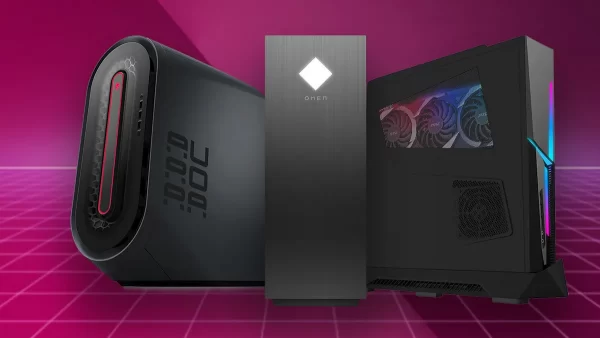The world of PC gaming can be an exhilarating one, but its proponents can also sometimes be just a touch elitist. If you’re just getting started in PC gaming, there are so many terms and concepts to remember that you might get confused and give up. Do you know the difference between SSDs and HDDs? What’s RAM, and how much of it do you need? What’s the best graphics card for your machine?
These can all be difficult questions to answer, but the truth is that the world of PC gaming really doesn’t need to be that complicated, no matter what you might hear from some of its snobbier enthusiasts. Here’s how you can get into PC gaming in 2023!
You don’t necessarily need a high-end machine
The first thing to note is that if you’re just looking to play less demanding indie games or casual titles, then you might not even need a high-end PC. While a high-end machine is great for current AAA games and more graphically demanding applications, if you just want to play 2D platformers or lo-fi puzzle games, then a standard laptop or desktop PC will suffice for that purpose. Of course, if you’re serious, you’ll want to upgrade your equipment eventually, but hey – Undertale, which we think is one of the greatest games of all time, will run on pretty much anyone’s laptop, so it’s not all about graphics.
Get someone to build your PC for you
The first thing you need to know about PC gaming is that one of the most intimidating parts – actually putting the machine together – doesn’t need to be difficult at all. There are companies out there, like the fine folks over at https://vibox.co.uk/, who will take care of the process for you, including generating a spec that works for you based on your budget. If you’re about to embark on your first ever PC gaming journey, we’d highly recommend getting professionals to construct your PC for you, because this massively minimises the risk that anything could go wrong.
If you’re building from scratch, research your components
Again, we really would not recommend building a PC entirely from scratch if you’re an absolute beginner in the world of PC gaming. However, if you’ve decided to go down this route, make sure to research your components. Pick the right motherboard for you and make sure your RAM and graphics card are compatible with it (they almost certainly will be, but it pays to be sure). Install the right storage drive and try to avoid mechanical HDDs unless you’re installing backup drives. At least 16GB of RAM is pretty much essential for a gaming machine, but 32GB is best. These are just some of the beginner tips, but there’s much more to learn, of course.
Laptops might not be worth it
You might be tempted to pick up a gaming laptop, but depending on what your use case might be, that’s not necessarily a good idea. A gaming laptop is great for portability (although they’re much less portable than regular laptops due to their bulkier components), but if you’re not going to be moving around an awful lot with your machine, then you’re probably better off just opting for a gaming desktop instead. If you know you’re going to be travelling a lot, then a gaming laptop could be a solid proposition, but otherwise, just stick to the tower.
Accessories and peripherals matter
The actual tower is only part of the PC gaming experience. You’re going to want the right keyboard, mouse, and audio equipment as well if you’re going to enhance your gaming rig. The best kind of keyboard for gaming is the mechanical keyboard; keys are more responsive and the clicky nature of the switches makes everything feel super-satisfying. Try to avoid wireless equipment if you can help it; while wireless gaming keyboards and mice are fine, there’s no reason to untether your gear and risk wireless interference or disconnection if you’re not going to be moving around a lot.
Opt for the right display
If money is no object for your new PC gaming machine, then you’re obviously going to want to opt for 4K displays. You’ll be pushing your rig to its absolute limit, but 4K is the sharpest and clearest resolution that’s realistically attainable for PC gamers right now. 1440p offers a sweet spot that still looks beautiful but won’t make your graphics card cry, while 1080p is just fine for lower-spec or medium-spec cards. It’s best to decide which resolution you want to opt for based on what your graphics card can do; your manufacturer will often provide a general guide as to what resolution they recommend for your card, and if not, you’ll usually find that information provided via reviews.
Try not to be a digital store loyalist
You’ll probably read a lot of arguments out there about why the Epic Games Store is evil, or why GOG is splitting user bases. We can’t tell you where to spend your money, of course, but we’d strongly recommend signing up for all the major digital distribution services. Many platforms, like Epic, GOG, Ubisoft Connect, and others, hold regular giveaways, so you could be missing out on free games if you’re not signed up. Of course, Steam is a must, too, as it’s one of the cheapest and most user-friendly digital distribution platforms out there, let alone for PC gamers.


